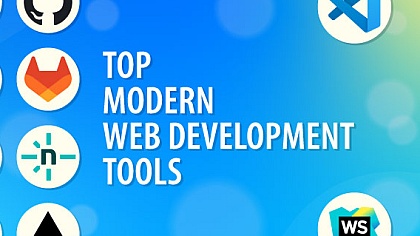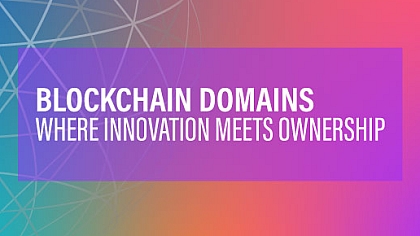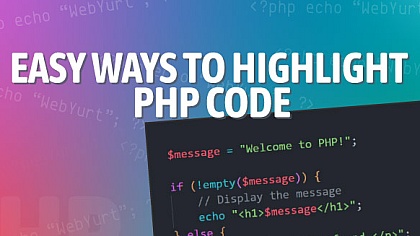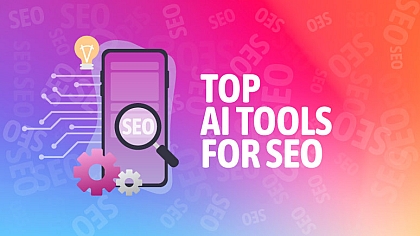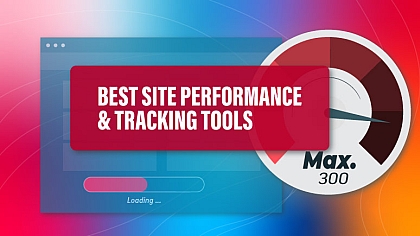
Prominent Frameworks for Robust eCommerce Development
You may be thinking of purchasing something online even while reading this article. How many times do we plan to shop online in a day or a month? Online shopping has become increasingly popular in recent years due to its convenience of purchasing goods and services from the comfort of one's home, with 24/7 availability, a wide selection of products, and easy price comparison.
As e-commerce popularity is increasing, the need to have an e-commerce website is also increasing. It is a vast business opportunity to have your products listed on an e-commerce website that allows customers to purchase online. With the increasing demand, it is challenging for e-commerce developers to choose the correct framework for developing e-commerce sites.
In e-commerce development, React can help to build fast, dynamic, and responsive web applications. Many reputable companies can help create the best online shopping website development.
Let's discuss a few other e-commerce frameworks and how to select a suitable one for your e-store.
What is an eCommerce Development Framework?
An e-commerce framework is a set of tools and libraries that help build websites and applications for online shopping. It manages products, handles orders, and online payments. The following are common elements in e-commerce development:
CMS: A platform for creating and managing content, such as product listings, descriptions, photos, and reviews, is known as a content management system (CMS).
Payment Gateway: These gateways enable online payment methods. It transfers money from the buyer's account to the seller's account in exchange for goods.
Order Management: A system for tracking orders, handling returns, and handling consumer inquiries is known as order management.
Shipping and Logistics: A module for coordinating product inventory, delivery, and shipment is called Shipping and logistics.
Customer Management: A database to keep track of customer information such as contact details, past purchases, and preferences.
Prominent e-Commerce Frameworks to Leverage
Popular e-commerce frameworks include React.JS, Angular, Laravel, Magento, WooCommerce, Shopify, etc. These frameworks provide a range of customizable templates, extensions, and plugins that allow developers to create unique e-commerce experiences for their clients.
Angular
Another preferred JavaScript framework for e-commerce development is Angular. It is a framework that offers a wide range of functionality for creating complex online applications, including e-commerce websites.
Angular offers many benefits for e-commerce development, including its strong two-way data binding features. The dynamic and interactive user interfaces become simple through this continuous communication between the view and the model.
Additionally, the performance of Angular is a benefit, which it achieves by using Ahead-of-Time (AOT) compilation and tree shaking. Dependency injection, routing, and form validation are just a few other tools and features that are provided for e-commerce development.
Laravel
A well-preferred PHP web development framework called Laravel is perfect for creating e-commerce systems. Laravel offers a variety of features and tools that facilitate the speedy and effective development of web applications. Its primary advantage is that it is an open-source framework, which means that you can use it for free and modify it to suit the particular requirements of your e-commerce enterprise.
Laravel has several integrated features and packages created especially for e-commerce development, such as order management systems, shopping cart capabilities, and payment gateway interfaces. Developers can benefit from significant time and effort savings by utilizing these pre-built components rather than creating them.
React.JS
In e-commerce development, ReactJS is a preferred technology for creating user interfaces. ReactJS is used to create a variety of components, including product listings, shopping carts, checkout pages, and more, for an e-commerce platform.
ReactJS's component-based architecture makes it easier to create reusable and modular components, which is one of the benefits of adopting it for e-commerce development. It may result in shorter development times and simple codebase maintenance.
Also, ReactJS can integrate nicely with other platforms, including GraphQL for data retrieval and Redux for state management. Moreover, it consists of a virtual DOM to reduce the amount of actual DOM updates resulting in good speed.
Opting for the adept React JS Development Company can be the right bet to achieve the best solution for e-commerce development, especially for businesses aiming to create web applications that are scalable and responsive.
Vue.JS
Vue.js is a JavaScript framework used for building dynamic and interactive user interfaces. It can be a powerful tool for responsive user interfaces which is crucial for e-commerce applications.
Additionally, Vue.js is very modular, making it simple to integrate with other tools like payment gateways or back-end systems. It facilitates the development of unique e-commerce solutions as per clients' requirements. Vue.js's large developer community offers numerous web tools and plugins to create applications rapidly and efficiently.
Shopify
Shopify is a leading e-commerce platform that provides tools and features for building and managing online stores. It offers developers a variety of customization choices and APIs that let them build platforms to suit the unique demands of their clients.
Shopify is easy to use. Even non-technical users will find the platform's interface user-friendly for setting up and managing an online store. Shopify also provides many customizable themes that help create unique and visually appealing online stores.
Moreover, Shopify offers exceptional security features like SSL encryption, PCI compliance, and fraud detection tools to help protect your data. Shopify also provides a range of SEO features to help stores rank higher in search engine results pages.
Additionally, it offers a range of payment options for online stores, including Shopify Payments, which allows stores to accept credit card payments directly within the platform. Shopify also supports a range of third-party payment gateways, including PayPal, Stripe, and Authorize.net.
Magento
Magento is a popular framework with many tools and libraries for creating highly customized online storefronts.
Magento provides developers with various customization choices, such as unique themes, extensions, and modules, enabling them to create feature-rich e-commerce systems. It makes Magento a preferred option for companies needing distinctive e-commerce solutions.
Additionally, Magento provides SEO support by including tools like sitemaps, meta tags, etc., and advanced search filters. It offers several integrated tools and connectors, such as order management systems, shipping alternatives, and payment gateways for ease of online shopping.
WooCommerce
The WordPress content management system has a plugin called Woocommerce. It allows businesses to leverage the power of WordPress for their online store. WooCommerce is a well-known e-commerce development platform with many functions and integrations.
Developing an online store with WooCommerce is flexible, scalable, and cost-effective. WooCommerce has robust search engine optimization (SEO) support, including functions like SEO-friendly URLs, reusable meta tags, and more. It also offers a lot of customization, like widgets, plugins, themes, and various integrated capabilities that help developers save a lot of time and work.
BigCommerce
BigCommerce is a cloud-based e-commerce platform built using the PHP programming language. It is a responsive platform that helps build flexible and customizable e-commerce platforms functioning effectively on mobile devices.
Several popular payment gateways, such as PayPal, Stripe, and Authorize.net, are supported by BigCommerce. Also, BigCommerce excels in performance thanks to its quickness and dependability. It uses techniques including enhanced caching and a content delivery network (CDN).
BigCommerce also allows businesses to sell their products on Amazon, eBay, and Facebook. It helps them reach a wider audience and increase their sales.
There are several frameworks for robust e-commerce development, each with unique advantages. It is crucial to consider aspects like scalability, customization, integrations, performance, and mobile friendliness while selecting a framework for your e-commerce platform. Among them, React.js is the best option for businesses looking for an interactive front-end solution for creating high-performance, responsive, and interactive e-commerce websites.




